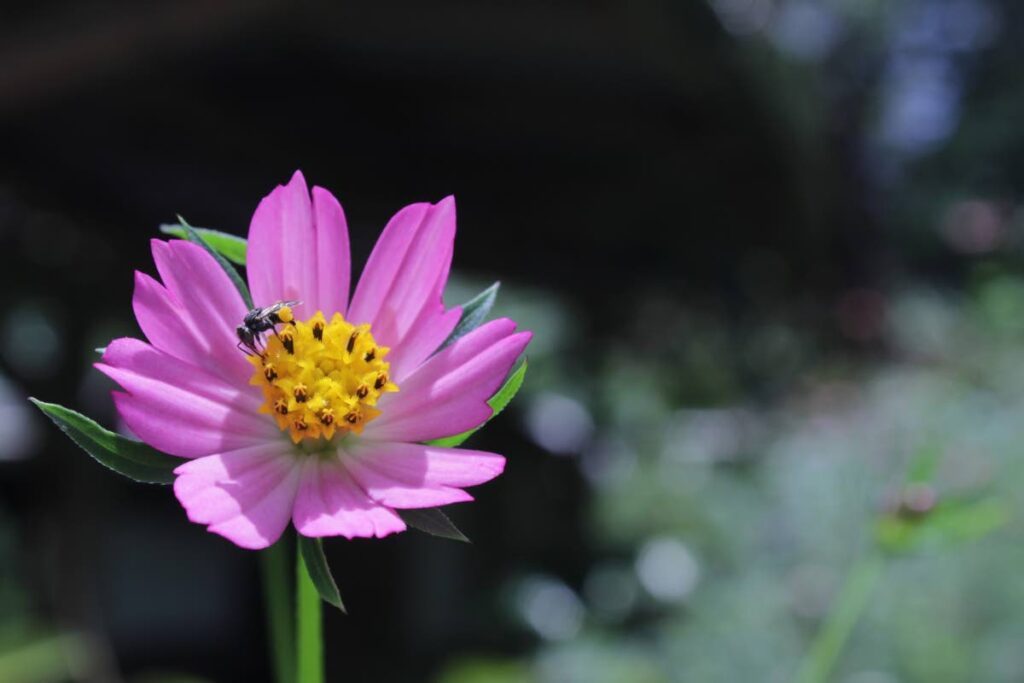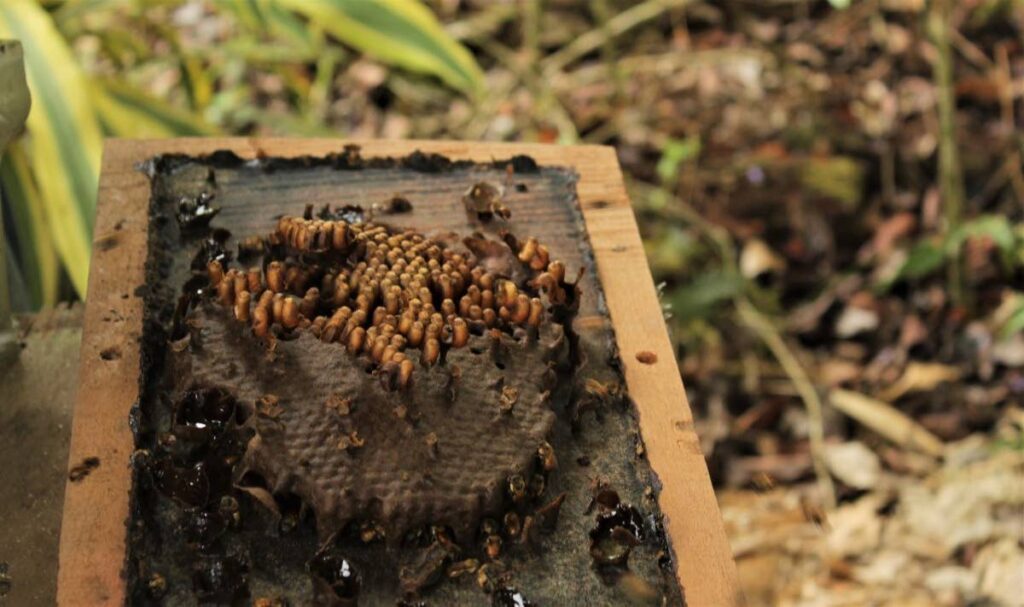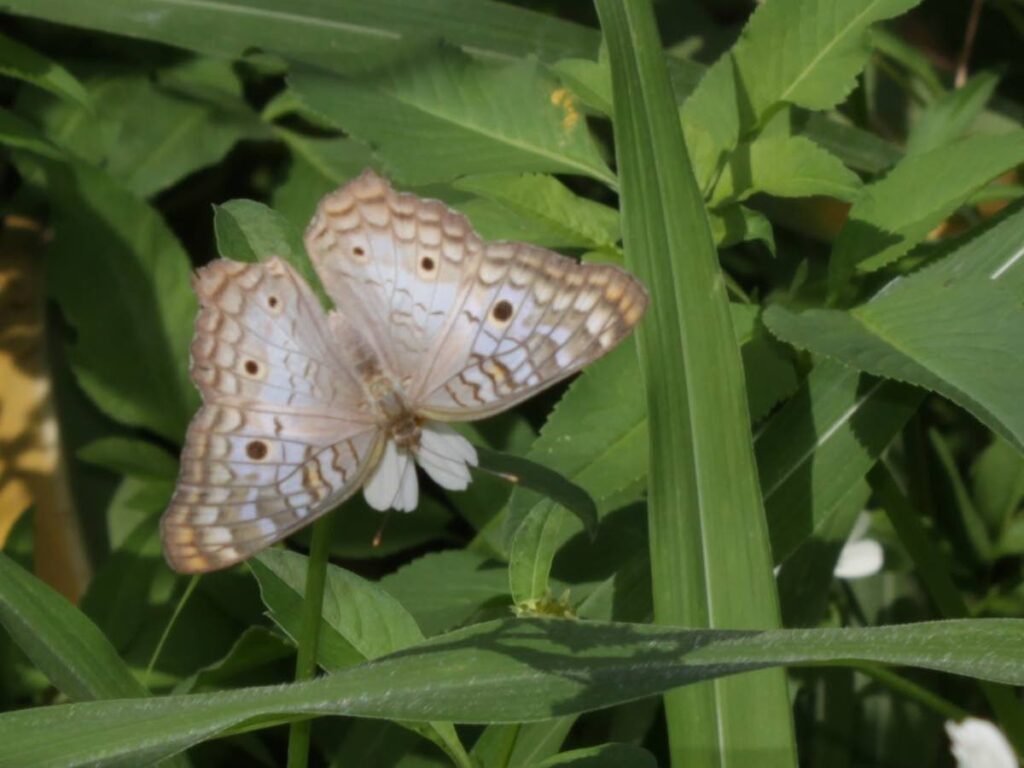Protecting our pollinators and food safety

As World Bee Day is observed on May 20, to be followed by the International Day for Biodiversity on May 22, the Biodiversity and Ecosystem Services Network of Trinidad and Tobago (BES-Net TT) is seeking to build public awareness of the need to conserve and create havens for local pollinators.
Each year, there are a host of special observances with environmental foci, to bring attention to the environmental issues affecting plant Earth, but more so, these observances create an opportunity for people to take action to address these issues.
Here in TT, one of these issues is sustainable food security. Unfortunately, most people do not make the connection between pollinator species and food production, and also, the connection between personal, unregulated use of pesticides and pollinator health.
In this article, the Biodiversity and Ecosystem Services Network Trinidad and Tobago (BES-Net TT) project shares information to help you make a personal contribution to protecting our pollinators and food security, through the creation of safe havens.
Importance of pollinators
Pollinators start a key process for food production, as they bring male and female reproductive cells together, by transfer of pollen grains from one flower to the female parts of flowers of the same plant species. After male and female reproductive cells join in the process of fertilisation, fruit and seed production is possible. This is a very simple explanation of how important pollination, and therefore, pollinators are to food production and plant reproduction.
While national efforts for pollinator protection may be ensconced in broad policies for environmental protection, more needs to be done at the industrial, community and personal level to become aware of pollinators and to take actions which can help to conserve and improve pollinator protection.

Negative impacts on pollinators
The changing climate is having an effect on pollinators, since changes in weather patterns have been affecting reproductive cycles of animals and the availability of water. Extensive use of broad spectrum pesticides in pest control in food production systems also compromises pollinator health, as killing of non-target beneficial organisms, like pollinators may occur. The pollinators’ habitats are also impacted by clear felling of trees, removing natural vegetation and replacing native plants by hybrids and exotics.
Pesticide alternatives
If all the negative actions above are replaced by positive changes, a lot can be done to minimise impacts on pollinator species. For pesticides used in agricultural systems, ensure that the selected chemical is environmentally friendly and less toxic to non-target organisms. A simple change is using chemicals with blue or green coded labels instead of chemicals with red and yellow coded labels.
In the home, pesticide use can be harmful to pollinators. The extensive use of spray insecticides for control of mosquitoes, cockroaches and other indoor pests, can be replaced by environmentally friendly, natural solutions, such as citronella, black sage, and garlic. Backyard gardeners can research and use techniques such as incorporating plants such as marigolds and garlic to deter pests, and plants such as cosmos, mint, parsley and zinnias to attract pollinators to the garden to boost food production.
Building safe habitats
While there is a penchant for having a tidy, manicured home garden, incorporating a pollinator garden can assist in providing food, water and shelter which pollinators need. A small area of a yard, or a flowerpot garden in smaller spaces, is needed to create such a space. Plants can be selected to attract certain animals, such as plants with red or purple tubular-shaped flowers for hummingbirds, or flowers that are “flat” like zinnias, graveyard daisies, lantanas or railway daisies for butterflies and bees.
Add plants that can collect water, like bromeliads, or heliconias, to provide drinking water for pollinators. Remember also the nighttime pollinators, moths and bats. Nectivorous bats feed on nectar from flowers of bananas and guavas and pale or white night-blooming flowers attract moths. If all or some of these plants can be added to a garden, porch or flowerpot garden, you can contribute to pollinator conservation.

Control cutting and digging
While most persons are familiar with the building of hives by bees, several species of bees do not live in these social arrangements but are solitary, and about 70 per cent of bee species actually live in the ground. Both types of bees are vulnerable to habitat destruction.
In TT, a few persons manage stingless bees help to save bee colonies from destruction when forest trees are earmarked for felling. They have educated sawmillers on how to identify hive entrances for some of these bees, so when felling, the beekeepers retain the part of the log in which the hive is located and transfer the colony safely to a specially designed box. These bees may also nest in walls and under the eaves of roofs. You can help by reaching out to beekeepers to secure hives when located.
The BES-Net TT project has prepared a short video about a stingless bee rescuer, which can be viewed at this link: https://www.youtube.com/watch?v=_PSnrv7Wln8
For bees that live in the ground, your best support can come from reducing tilling and removal of leaf litter from the ground. Yes, the beautifully landscaped garden is the goal, however, by causing little disturbance to this bee habitat you make a difference in bee protection. If you have a food garden, maintain piles of wood or branches which may be laying around the perimeter; there is a good chance that some bees have taken up residence within or below them.
Above all, let’s be kind to our environment, the plants and animals that are within it. Their roles in providing services to humans go beyond what you may know; these services are crucial to sustaining our life on planet Earth.
About BES-Net
BES-Net TT is part of the global Biodiversity and Ecosystem Services Network, implemented by UNDP, UNEP-WCMC and UNESCO, with the aim of building capacity and commitment for biodiversity action across the world. Funded by the Government of Germany, through the International Climate Initiative, and SwedBio. The Network aims to translate the findings from the latest IPBES assessments into action for biodiversity and conservation on the ground.
For more info on BESNet TT, visit the project webpage at: http://biodiversity.gov.tt/index.php/bes-net.html
Follow on Social Media: https://www.facebook.com/besnet.tt/ https://www.instagram.com/besnet.tt/

Comments
"Protecting our pollinators and food safety"